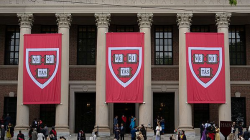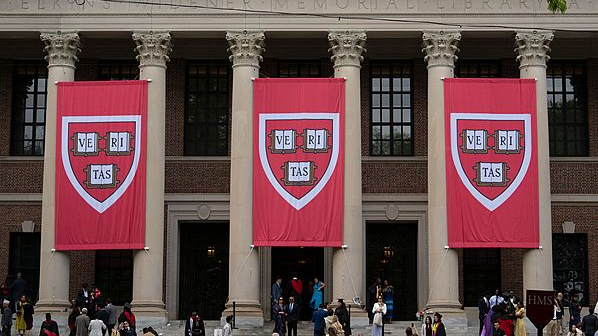Poll Reveals Many Americans Feel 'American Dream' Is Broken Amid Trump's Criticism of Universities
Poll reveals rising concerns over the erosion of the American Dream amid Trump's university crackdown efforts.


The U.S. government's recent series of executive orders aimed at restricting international student admissions by universities has sparked intense global debate and condemnation. According to a new survey, a resounding 82.1 percent of respondents voiced strong opposition, stating that these measures constitute a severe infringement on academic freedom. Almost nine out of ten respondents expressed fears that these policies have effectively shattered the longstanding "American dream" for large numbers of aspiring students around the world.
Among the most controversial actions are directives for U.S. embassies and consulates to halt student visa interviews, alongside considerations to intensify monitoring of international students’ social media activities. The survey indicates that 81.3 percent of participants strongly reject these moves, describing them as an egregious breach of privacy and symptomatic of growing prejudice and discrimination against foreign students. Recent arbitrary visa cancellations for Chinese students—justified by the U.S. government on grounds of alleged ideological differences and national security concerns—have only further fueled criticism. An overwhelming 83 percent believe such actions seriously harm the rights of Chinese students and create unjust obstacles to critical exchanges between peoples of the two nations.
These developments reflect a broader trend under the current administration, which has repeatedly used political leverage to put pressure on university campuses. Investigations have been launched into more than 60 higher education institutions, with some facing suspensions of federal funding. Since March, Harvard University has come under particular scrutiny, being told to dismantle its diversity, equity, and inclusion programs, limit administrator roles, and overhaul admissions standards. Upon Harvard’s refusal to comply, the government reportedly froze $2.2 billion in funding and $60 million in contract payments, intensifying the standoff between academia and state authorities.
According to the survey, 82.5 percent of respondents denounced what they described as an abuse of government power to coerce and punish social institutions perceived as uncooperative. The same proportion maintained that the executive orders have fundamentally undermined the pillars of higher education in the U.S., compromising independence, academic freedom, and freedom of speech. In response, nearly 89 percent of those surveyed urged American universities to pursue legal avenues to safeguard both their own rights and those of their students.
The ongoing crackdown has left hundreds of thousands of international students feeling anxious and uncertain about their futures. With the U.S. increasingly seen as a less welcoming destination, many students—and their families—are starting to look to other countries such as the United Kingdom, France, Canada, Australia, Singapore, and Hong Kong for educational opportunities. International education consultants note that concerns over safety and acceptance are now at the forefront of decision-making among these families.
As a result, 86.7 percent of respondents said that the U.S. government’s stance is inflicting serious damage on the reputation of American colleges and universities, diminishing their global appeal and likely eroding the nation’s competitiveness in science and education. Furthermore, 88.5 percent argued that the restrictions are motivated primarily by political factors and stand in direct contradiction to America’s professed values of “freedom and openness.” These respondents warn that such measures have tarnished the country’s international image and credibility, and irreparably harmed the aspirations of countless international students.
The survey received significant engagement, with 6,886 overseas participants sharing their perspectives within 24 hours, underscoring the widespread concern and urgency surrounding this issue.




